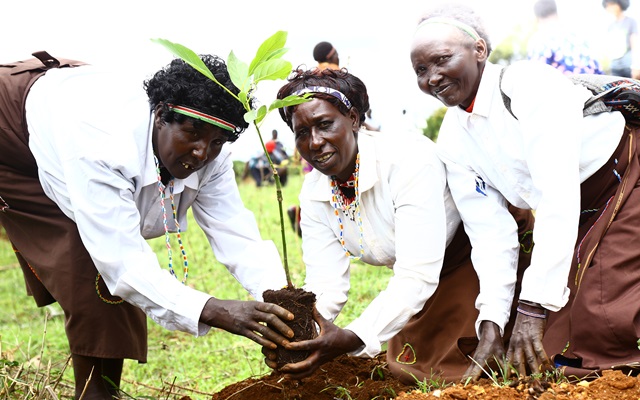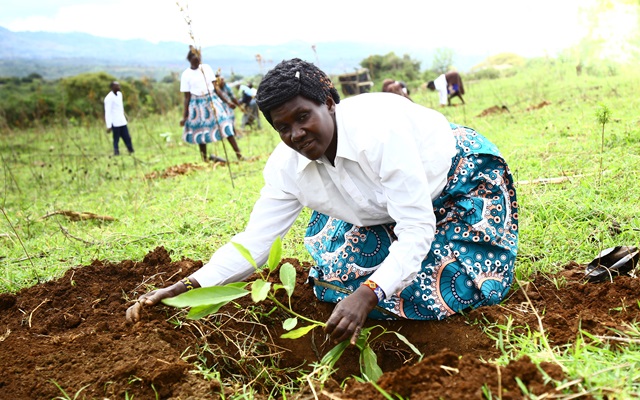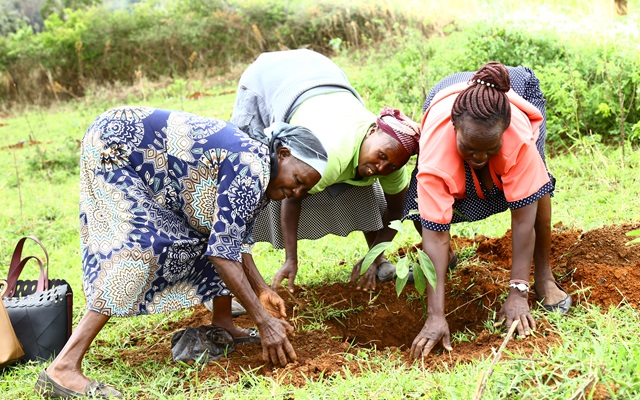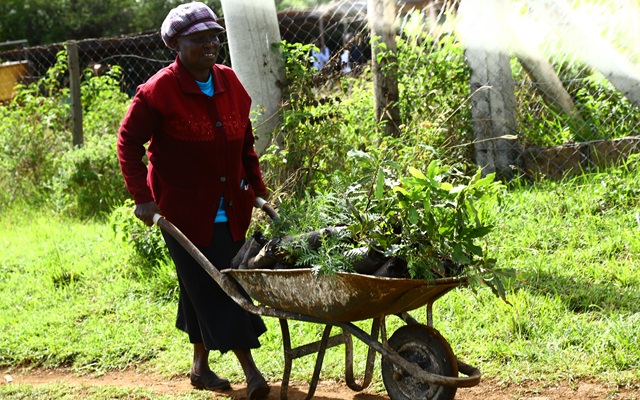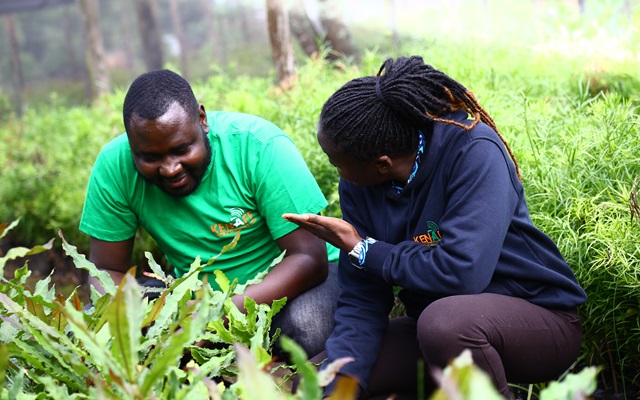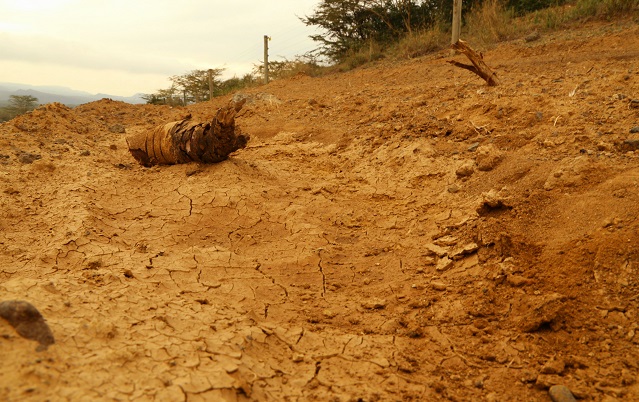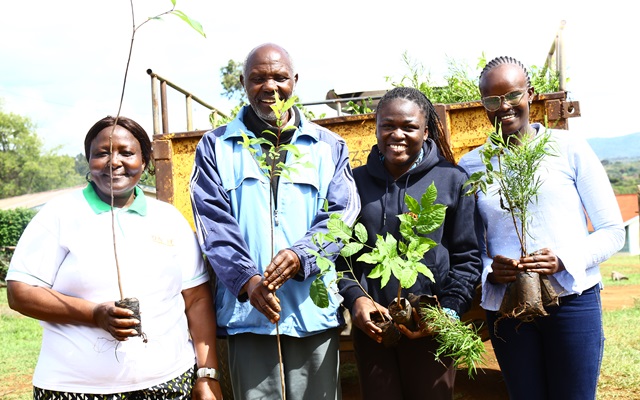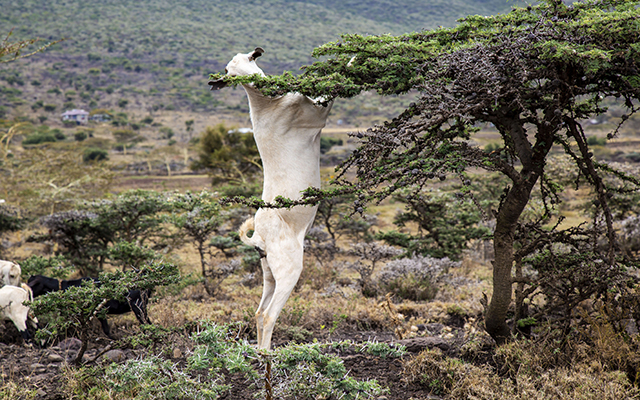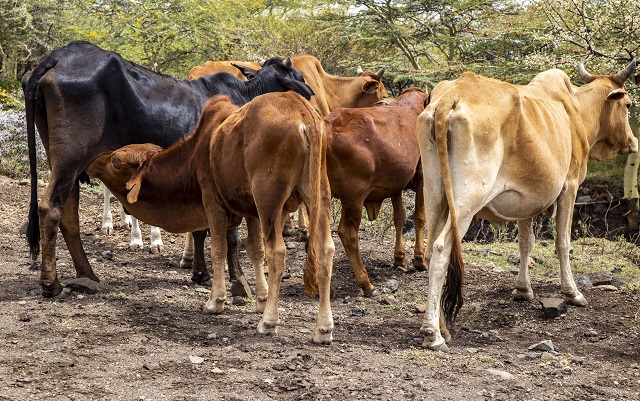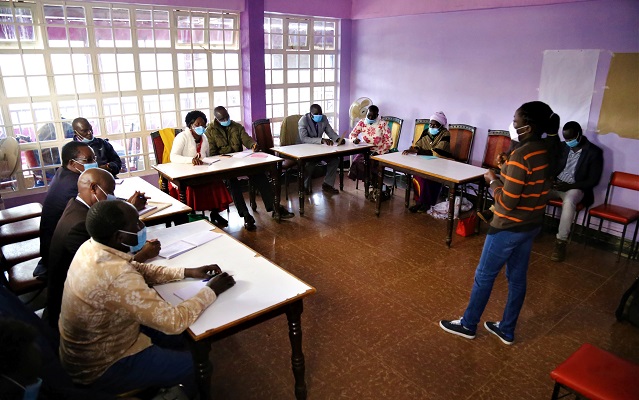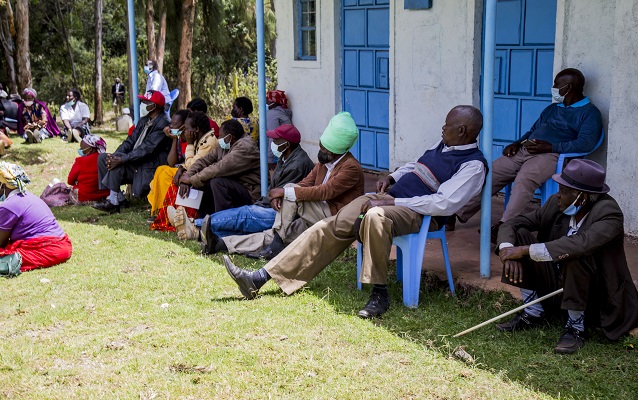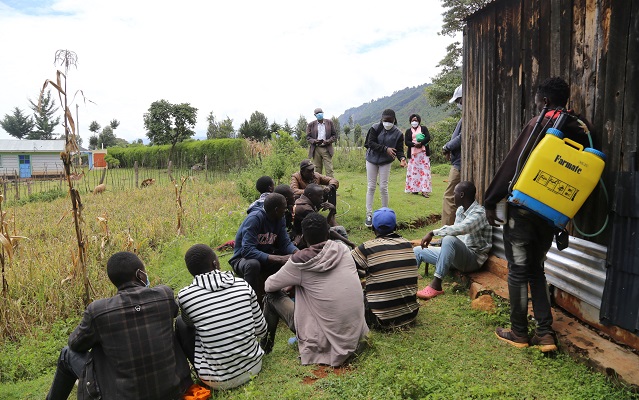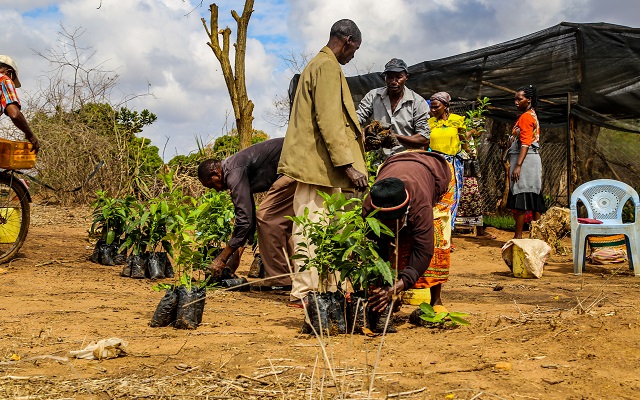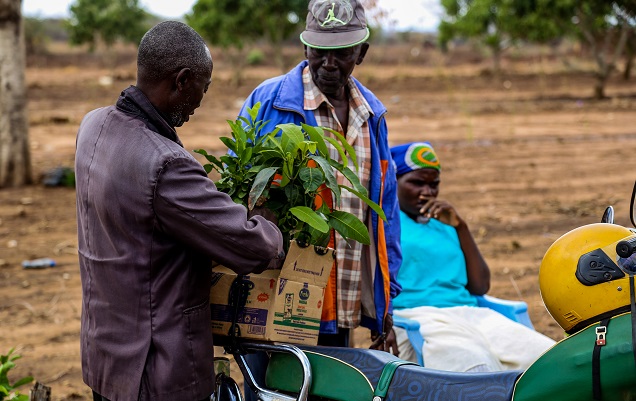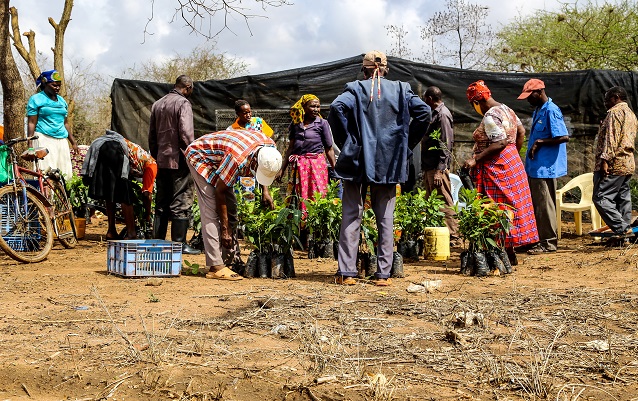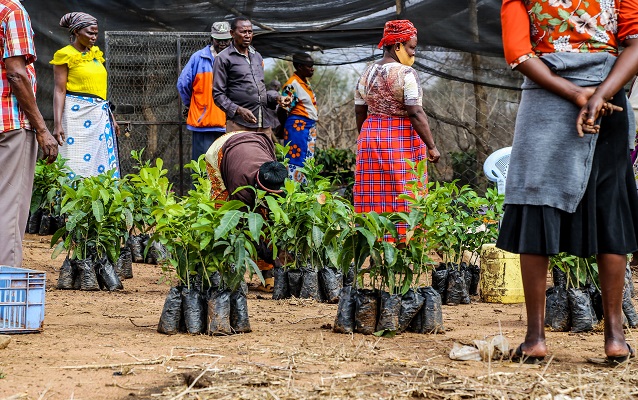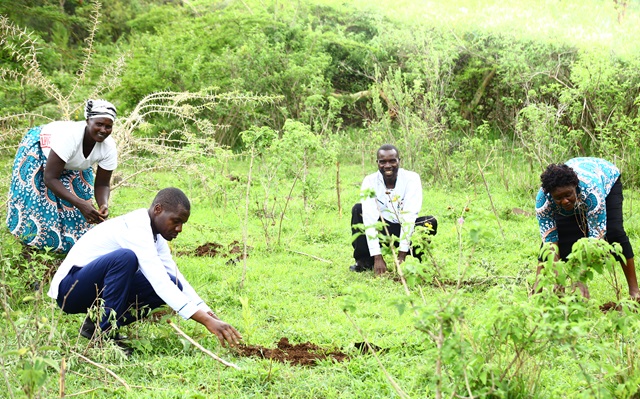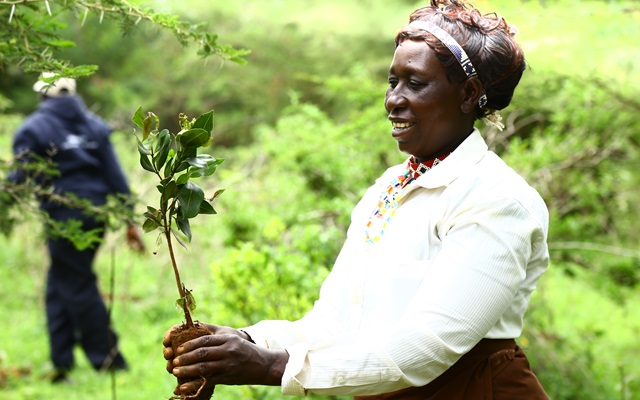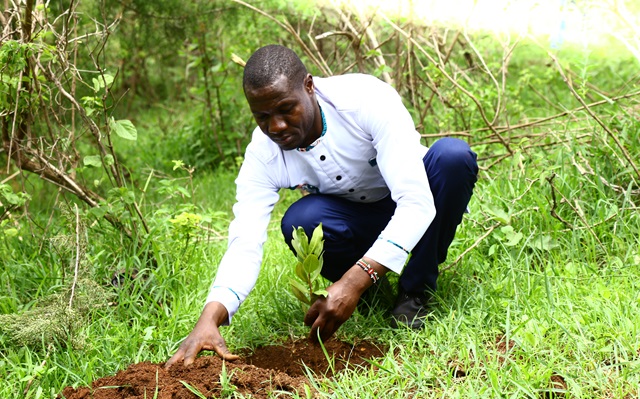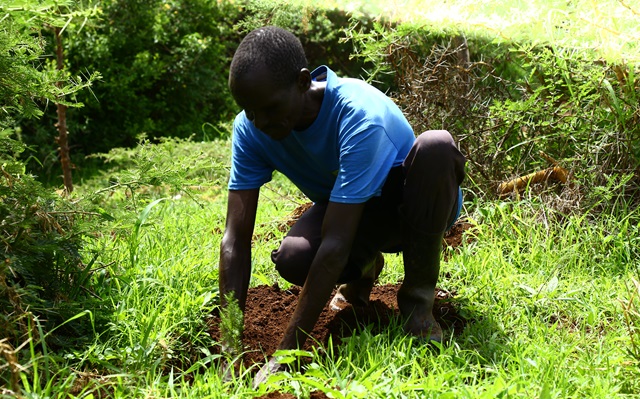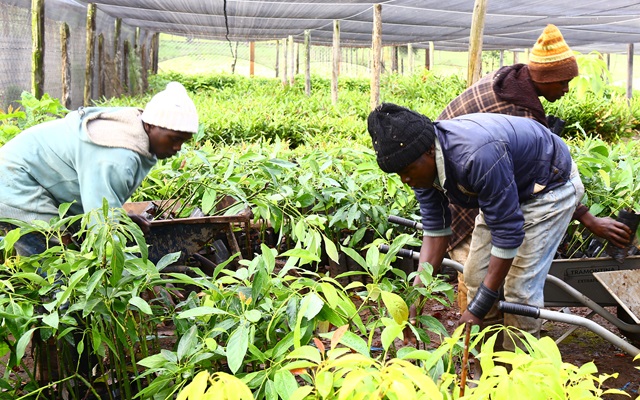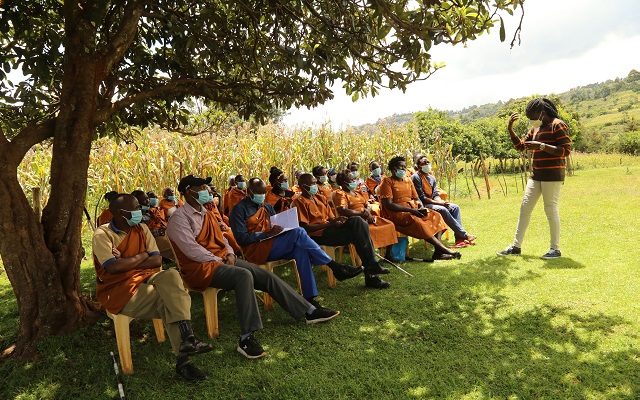Implementing silvopastoral systems in the North Rift
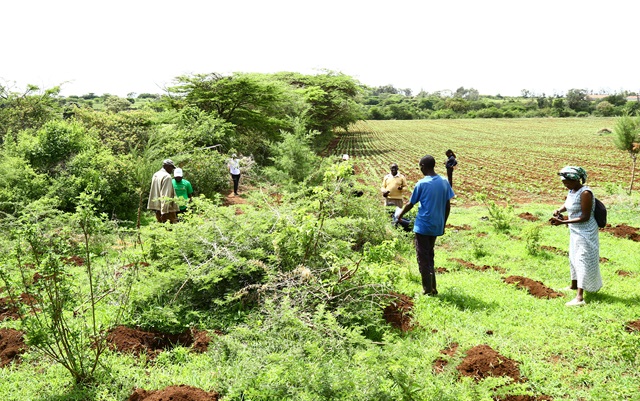
The livelihoods of pastoral and agropastoral communities living in arid and semi-arid areas of Kenya is significantly threatened by the adverse effects of climate change. Severe droughts and other extreme weather conditions destabilize food security, pushing people to absolute poverty. The IKI Small Grants project aims to reduce climate vulnerabilities of farmers in the counties of Elgeyo Marakwet and West Pokot by promoting silvopastoral systems. The system combines planting indigenous shrubs, herbs, and fruit trees with traditional crops and livestock rearing. The benefits are: increased biomass and livestock production, increased farm profitability, improved biodiversity and soil quality. Since tree planting is an easy and cost-effective method a higher return for farmers is expected in addition, carbon storage; reducing CO2 emissions and restoring damaged/degraded systems. The project addresses particularly women and young people as they are the most vulnerable in the face of climate change.
INITIAL SITUATION
Located in the former Rift Valley Province, Kenya Elgeyo Marakwet and West Pokot counties have a population of approximately 1.1 Million people. The agriculture and livestock sector is the most important segment of the counties’ economies with 81% of the population relying on the sector directly.
TARGET GROUP
The project targets 1000 farmers in total with a special focus on young female farmers. It also addresses political stakeholders who are involved in agricultural policy making.
APPROACH AND ACTIVITIES
KENAFF offers an intensive facilitation experience on the overview of the silvopastoral systems (SPS), the systems’ components, traditional versus improved silvopastoral systems and the benefits of SPS, that empower smallholder farmers to establish the most fertile combination of agricultural practices on their land. The training combines facilitation, knowledge-building methods and participatory approach with farmers providing experiences, for peer-to-peer learning, focus group discussions, world café and plenary discussions.
Initially, 1000 farmers participate in trainings that guide them through the techniques of silvo-pastoralism. 390 silvo-pastoral champions are selected from this group to receive personal guidance in implementing silvo-pastoral systems on their fields. Through farmer field days and planting sessions, native plant species are cultivated, and extensive peer-to-peer learning drive dissemination and exchange of experiences among farmers.
The project takes the political level into account. KENAFF takes up and pursue, with relevant stakeholders the need to entrench silvopastoral system in Kenya through policy dialogues at the county and national levels. Mainstreaming of silvo-pastoralism helps to recover degraded rangeland, increase livestock productivity, improve environmental sustainability, and build resilience to climate change. As a result, joint policy briefs and action plans for Elgeyo Marakwet and West Pokot are drafted and fronted for adoption.
KENAFF also leverages on her organisational structure (ward to sub-county to county to regional and then national) to disseminate information and share knowledge among its members and the general farming population in Kenya. Dissemination and knowledge sharing is done through the quarterly KENAFF newsletter (Farmers’ Voice) and the USSD code (*501#) under the technical advisory services menu item on the latest scientific findings concerning agricultural practices, food security, and climate change impacts on food systems.
LATEST PROJECT HIGHLIGHTS AND IMPACTS
- Project finalised
- 1000 farmers trained on Silvopastoralism
- with 700 female farmers
- and 400 farmers under the age of 35
- national consultation meeting dialogue held, with 56 stakeholders engaged
- 2 Multi Actor platforms formed
- establishment of fodder banking through the silvopastoral systems approach
- 12,000 seedlings availed, for planting in farmers’ and communal land.
- 4058 seedlings planted
- field demonstration days for 390 champion farmers executed
CAPACITY DEVELOPMENT
IKI Small Grants supports KENAFF in their organisational capacity development through:
- Capacity development on fundraising and proposal writing, presentation and negotiation techniques, and conflict management skills
- Capacity building on lobby and advocacy for agricultural policy action at the county level
ABOUT THE ORGANISATION
Kenya National Farmers’ Federation (“KENAFF”), founded in 1946 as the Kenya National Farmers Union (KNFU), is a non-political, non-profit making member-based umbrella organization registered under Section 10 of the Societies Act Cap 108, Laws of Kenya. The Federation represents the interests of over 2 million farm families. Her core mandate is embodied in the motto: The Farmers’ Voice: to represent, articulate, protect and promote interests of Kenyan farmers through targeted lobby and advocacy, policy action, farmer empowerment, capacity building, and promotion of sector stakeholders’ cohesiveness in dispensing progressive uptake of agricultural innovations for enhanced socio-economic status of the farmers.


